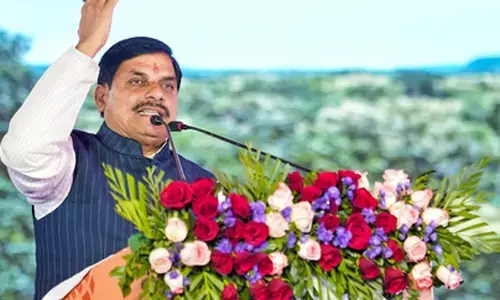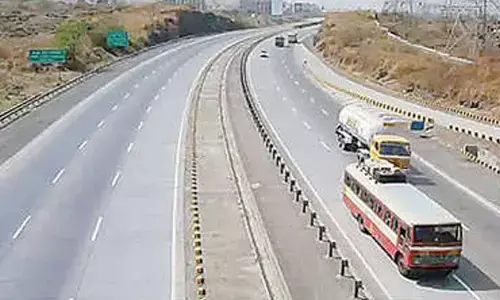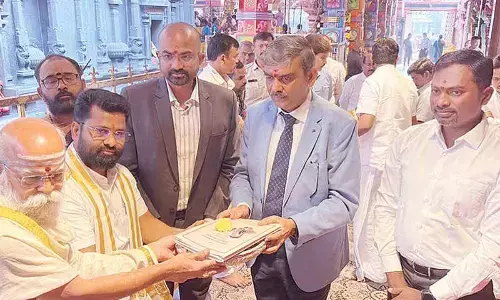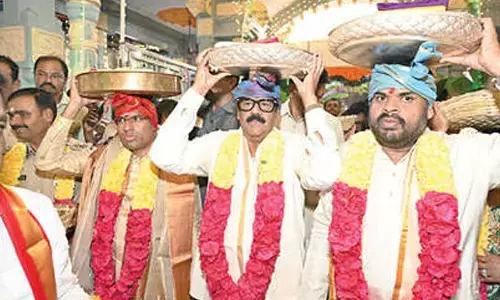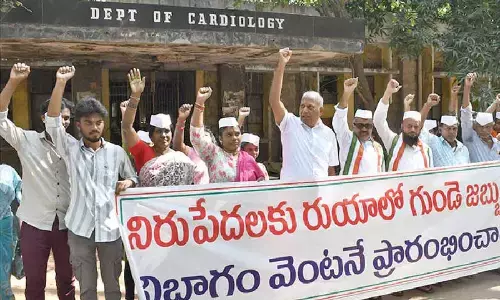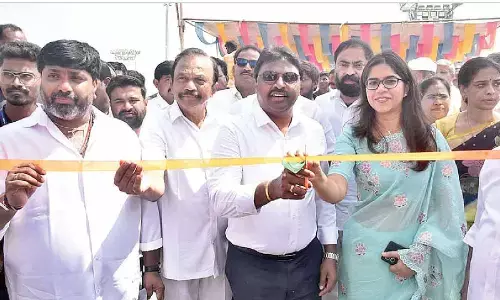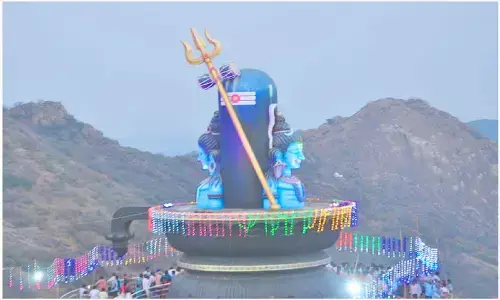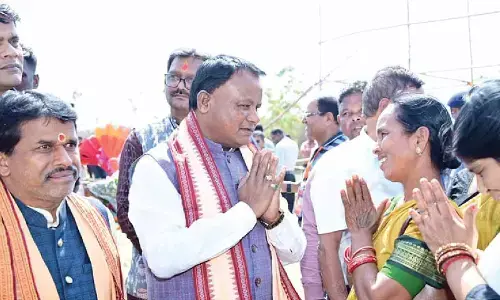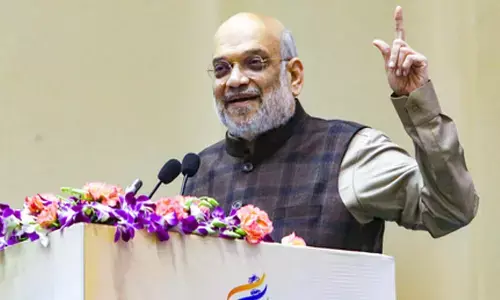Persecuted by their own govt
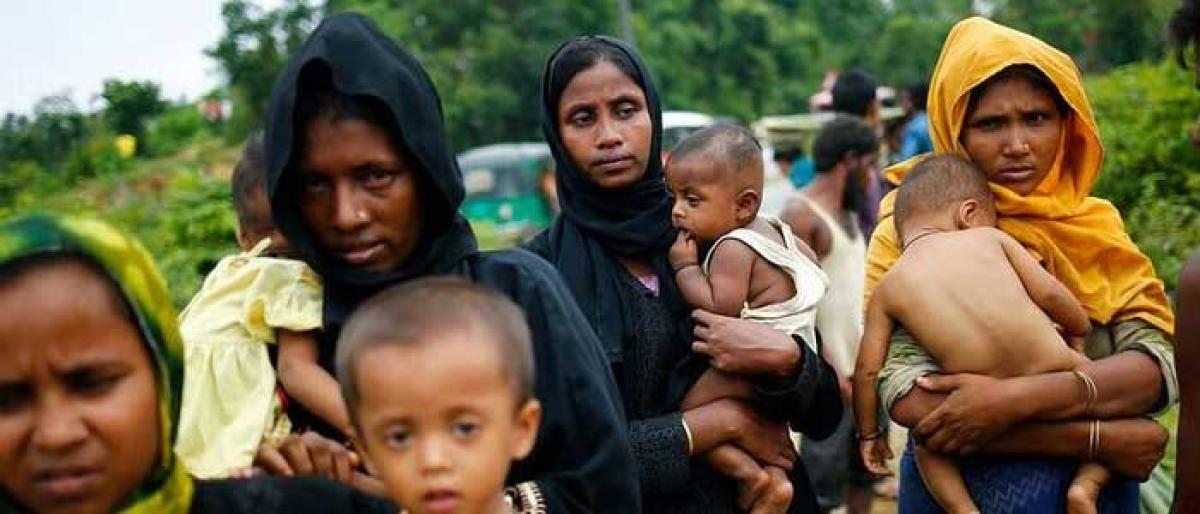
That Prime Minister Narendra Modi almost ignored Rohingya crisis during his much publicised visit to Myanmar the other day was on the expected lines. Modi could not have done otherwise in view of our own concerns. But was the silence prudent?
That Prime Minister Narendra Modi almost ignored Rohingya crisis during his much publicised visit to Myanmar the other day was on the expected lines. Modi could not have done otherwise in view of our own concerns. But was the silence prudent?
India has been wary of taking a stand against the Rohingya persecution fearing China's role in Myanmar despite knowing full well that it is yet another largest humanitarian crisis brewing on its borders.
Not just India, a majority of the Western countries too are yet to sit up and take note of the tragedy thanks to Noble Laureate Daw Aung San Suu Kyi's international stature. India itself is home to more than 40,000 Rohingyas with around 17,000 of them registered with the United National Refugee Agency (UNHCR). According to UNHCR, Rohingyas are relocated in the country in Jammu, Mewat district of Haryana, Delhi, Hyderabad, Jaipur and Chennai. However, out of this only 500 have been issued long-term visas and the rest remain stateless.
Rohingyas clearly deserve the tag of ‘most persecuted’ in this world. This Muslim minority population of Myanmar is facing a systematic defilement in the hands of the Myanmar government and its military despite outrage in some parts of the world – it is growing in the Muslim world now.
The International Observatory of the Stateless states that it was India which encouraged migration from its land after the British annexed the Rakhine (in today's Myanmar) region in 1824-26. Since then the previous Burmese governments have all maintained that Rohingyas are illegal immigrants and deprived them of citizenship and the add-on benefits. Myanmar recognises 135 ethnic groups as its nationals, but never included these Rohingyas. Socially and culturally these Rohingyas are different from the Myanmar Buddhists.
When General Ne Win's Burma Socialist Programme Party seized power, the military government shut down Rohingya social and political organisations and the military government amended the citizenship law to strip Rohingyas of their Burmese nationality and basic rights.
(In addition, there are more than 2.5 million Persons of Indian Origin residing in Myanmar as stateless persons). The United Nations is now worried that the Rohingya issue could turn out to be a humanitarian crisis soon if the Myanmar government continues its brutal persecution that has seen more than one lakh refugees entering the neighbouring Bangladesh already. Severe malnutrition affects the children and it is feared that thousands of these could perish soon if international intervention does not follow soon.
But how long would the ethnic cleansing be allowed in Myanmar is the moot question. The Arakan project which gives the feedback to the UN over the Rohingya issue has been consistent in highlighting the ethnic cleansing by the military and government, more so since the militant attack on the border guards of Myanmar by the Rohingya terrorists in August.
It is highly disappointing to note that Daw Aung San Su Kyi, soon after her election to the position of State Counsellor began justifying ethnic cleansing in the country blaming the tragedy "as an iceberg of misinformation.” Just imagine a million and more of a population having no right to education, health, jobs or any other form of livelihood.
All in the country of Suu Kyi! She may be under pressure to remain silent and allow the brutalities like rape, extrajudicial killings and extortions. Images of villages being burnt and allegations of pleople being thrown into the leaping flames do not add to her glory at all. But then there is no independent media probe there. No one is allowed into the lawless Rakhine state and the military operations there do now allow any aid to reach the zone. All that we here is fervent denials by the government and the military of the allegations.
Early reports suggested that at least 3,000 children are suffering from malnutrition in the Northern Rakhine State and there are reports that they are not receiving their quota of food and medicines due to blockade.
With India now saying it would deport Rohingyas illegally living in the country – roughly about 40,000 – and Bangladesh already blocking the entry of Rohingyas trying to flee the Myanmar military atrocities, the crisis is only set to get blown out of control sooner. Where do they go if we decide to deport them back? How do we deport them when Myanmar is unwilling to take them? Do we airdrop them only to be shot?
And the most disturbing development of it all is the language used in defending oneself. Reports emerging from the disturbed ground indicate that the Myanmarese officials are using the most dehumanising language to defend their forces and their atrocities.
In an interview to the BBC, Aung Win, an MP of Myanmar who is heading the investigation into the violence, sometime back said "there is no truth in the allegations of rape. There is no ground at all to believe it. No Myanmar soldier would even think of violating any Rohingya woman as they are all very dirty.”
In addition to such inhuman observations all kinds of conspiracy theories are also floated. Emanuel Stoakes, a leading journalist who has produced two major documentaries on the Rohingya crisis and who keeps bringing the atrocities to the notice of the world, has written extensively on the violation of human rights and dignity in Myanmar of late.
Stoakes bemoaned in one of his recent write-ups: "(While the international community does not take these things serioiusly), they are received with more credulity by the Burmese public. The idea that the Rohingya, who are the subject of widespread prejudice throughout Myanmar, are involved in conspiracies with international groups has long been by promoted by popular demagogues in the country. Advancing such a narrative to deflect criticism from the army and government is not only deeply cynical but genuinely dangerous."
Suu Kyi's Ministry of Information mouthpiece – the Global Light of Myanmar – observed recently: "The Thorn Needs Removing If It Pierces,” implicitly supporting the actions of the armed forces, while remaining ambiguous on whether or not the “thorn” was a symbol for all Rohingya or just the insurgents. In the same manner, a more recent op-ed warned of the danger posed by “detestable human fleas… trying to combine with each other to amass their force,” he had written.
The Arakan Project group maintains “according to our information, the claims about rapes, arson attacks, and killings are accurate. More than 100 civilians have been killed, including women and children, and hundreds have been arrested. The military have shot people on sight, while they were fleeing”.
Kofi Annan, the former UN Chief who heads Rakhine Border State Commission, recently called for scrapping of restrictions on movement and citizenship of Rohingya minority to avoid fuelling extremism. This is a real danger with sections within the Muslim world keenly watching the situation.
A million plus population is not a small group and if it is willing to embraces terrorism in any form, it would worsen the situation for the world in general and more so for Myanmar, Bangladesh and India.
This is the toughest period in the history of Myanmar as it makes its transition from the military rule. Annan was appointed by the State Counsellor Suu Kyi and was tasked with healing long simmering divisions between the Rohingya Muslims and Myanmar Buddhists in the Western State. Describing Rohingya as the "single biggest stateless community in the world," the nine-member committee said further radicalisation within both communities is a real risk.
Is the world ready to risk creation of a fresh catchment area for the terrorists?


